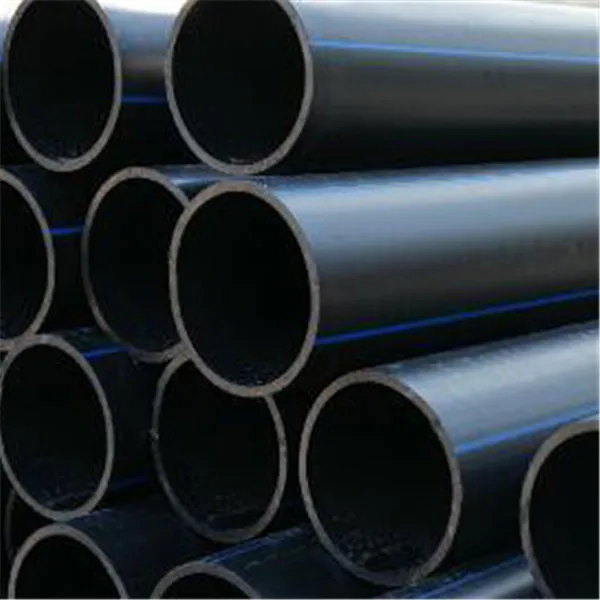Nov . 22, 2024 03:16 Back to list
cpvc chemical pipe
Understanding CPVC Chemical Pipes A Comprehensive Overview
In the modern industrial landscape, the choice of piping materials plays a crucial role in ensuring the efficient transportation of various chemicals. One material that has garnered significant attention is Chlorinated Polyvinyl Chloride, commonly referred to as CPVC. This article delves into the essential aspects of CPVC chemical pipes, highlighting their benefits, applications, and why they are preferred in certain environments.
What is CPVC?
CPVC is a thermoplastic produced by the chlorination of polyvinyl chloride (PVC) resin. This process enhances the chemical resistance and thermal stability of the resulting material. CPVC pipes are typically yellow or light gray and are recognized for their durability and adaptability across a range of industrial applications. Due to their superior properties, CPVC pipes are a preferred choice for transporting aggressive chemicals, hot water, and corrosive fluids.
Benefits of CPVC Chemical Pipes
1. Chemical Resistance One of the standout features of CPVC is its excellent resistance to a broad spectrum of chemicals, including acids, bases, and salts. This property makes CPVC ideal for use in chemical processing plants, where the risk of leaks or corrosion can have dire consequences.
2. Temperature Tolerance CPVC pipes can withstand temperatures up to 200°F (93°C), surpassing the limits of standard PVC pipes. This makes them suitable for hot water applications, helping industries maintain efficiency without compromising safety.
3. Low Thermal Conductivity CPVC has low thermal conductivity, which prevents heat loss during the transportation of hot liquids. This characteristic is vital in processes that require temperature control and efficiency.
4. Lightweight and Easy to Install Compared to metallic pipes, CPVC is significantly lighter, making it easier to handle and install. Its compatibility with standard fittings and flanges allows for quick assembly, reducing labor costs and installation times.
cpvc chemical pipe

5. Non-toxic and Safe CPVC is non-toxic and does not leach harmful chemicals into the fluids it carries. This property is particularly crucial in applications where the purity of the transported substances is paramount, such as in food processing or potable water systems.
Applications of CPVC Chemical Pipes
The versatility of CPVC pipes enables their use across various industries, including
- Chemical Processing CPVC is widely used to transport caustic and corrosive chemicals in processing facilities. Its resistance ensures reliability in environments where traditional materials might fail.
- Residential and Commercial Plumbing CPVC pipes are a common choice for residential plumbing systems, taking advantage of their resistance to both heat and pressure, which helps to prevent premature failure.
- Fire-Sprinkler Systems Due to their thermal properties and flame resistance, CPVC pipes are employed in fire sprinkler systems, ensuring safety and compliance with fire codes.
- Water Treatment In water treatment facilities, CPVC pipes are used for their durability and resistance to the chemicals used in purification processes.
Conclusion
In conclusion, CPVC chemical pipes represent a vital component of modern infrastructure, particularly in industries that require reliable and safe transportation of aggressive fluids. Their chemical resistance, thermal stability, and ease of installation make them a superior choice over traditional materials. As industries continue to evolve and demand more innovative solutions, the role of CPVC is poised to expand, promising enhanced safety, efficiency, and performance in chemical transport applications. Whether it's in chemical processing, plumbing, or fire safety, the benefits of CPVC pipes are undeniable, making them an essential choice for future developments.
-
HDPE Pipe Fittings: Durable, Leak-Proof Solutions
NewsAug.16,2025
-
Premium CPVC Sheet: High-Temp & Chemical Resistant Solutions
NewsAug.15,2025
-
Durable PPR Pipe for Hot & Cold Water Systems - Easy Install
NewsAug.14,2025
-
Durable HDPE Sheet | Versatile & Impact-Resistant Plastic
NewsAug.13,2025
-
Premium PVC Soft Sheets: Clear, Flexible & Durable
NewsAug.12,2025
-
Premium PVC Round Rods: Durable, Chemical Resistant, Easy to Machine
NewsAug.11,2025

